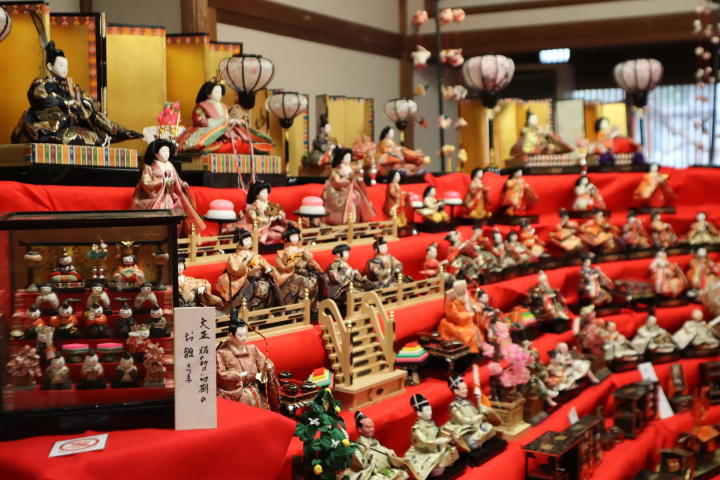Try The Tofu Varieties Available At Supermarkets!

Tofu has been a very important ingredient in Japanese cuisine since ancient times. It is widely available in many varieties and is very easy to cook. We introduce here some tofu varieties you can buy at Japanese supermarkets.
Tofu, a specialty made with soy beans, is a staple in Japanese cooking and is also something you will most likely be served when dining out in Japan. There are several varieties of tofu, used in many types of dishes. While some dishes contain tofu as their base ingredient - such as yudoufu, in others it is mixed with vegetables or meat, such as in nabe hotpot dishes.

Picture from: Melting Tofu! Delectable Ureshino Hot Spring Yudoufu at Saga-Hirakawaya
Tofu has a high protein content and is therefore especially recommended for people who want to avoid eating meat or just want to eat something that is light and quick to prepare.
The best part about tofu is that it is available for purchase at convenience stores and supermarkets. Let’s take a look at some of the different types of tofu that one is able to find at Japanese supermarkets.
What Is Tofu?
Tofu is a soy bean product made with coagulated soy milk, that is then pressed into blocks of different sizes and firmness. Tofu can be very soft, firm or extra-firm, and each of these varieties also come prepared in different ways. In Japan, tofu is often eaten as a side dish, as an ingredient in other foods or as an individual source of protein. The central role played by soy beans in East Asian cuisine has maintained tofu’s popularity in Japan for hundreds of years.
As a result, many different varieties of tofu are available in most Japanese supermarkets and are used in everyday cooking. Let's take a look at the most popular of these varieties.
Momen Tofu

Momen tofu is the name of the firm variety of tofu, often priced as low as 30 yen. This variety of tofu is flexible and can be used in various styles of cooking. Its firmness allows it to absorb other flavors from the food it’s cooked with, and it also makes more practical to serve. A very popular way of using momen tofu is cutting it in smaller blocks and adding it to the popular Japanese dish, nabe.
Kinu Tofu

Kinu tofu is another variety of tofu and just as popular as momen. The biggest difference between them consists in its firmness. Kinu tofu is silken tofu - a soft variety of tofu. This particular type of tofu is often used to make desserts, such as puddings, ice creams or various types of cream based items. Some varieties can also be eaten straight from the package as small snacks. Some people like to add kinu tofu to their miso soup, but for miso soup momen tofu is equally popular.
The price range of kinu tofu varies depending on where you buy it, but you can find it at prices as low as 30 yen in some supermarkets.
Abura-age

The abura-age variety of tofu is another very popular type. Abura-age are thin slices of tofu that are fried in oil. When deep fried, almost none of the soft white part of the tofu block is left. The slice becomes even thinner, and has a specific fragrance and chewiness. These slices have several usages, and you will come across some of them quite frequently in Japan.

The popular Inari-zushi , which is sushi rice served in a tofu pocket, is a great example of a dish using abura-age. Smaller pieces of abura-age can be served in miso soups or salads also. You will also see a slice of abura-age often being served on top of your bowl of ramen.
Abura-age can be bought in different varieties at the supermarket, as larger or smaller pieces for different usages.
Atsuage
Atsuage tofu is another variety of fried tofu that is available at most supermarkets, usually sold in bigger blocks. The frying process is a bit different from the aburaage, as atsuage is being gently fried so that it will get a softly fried skin around, but still leaving the softer white tofu inside.
Its firmness makes it easy to cook with, and very enjoyable in many dishes. Atsuage is also a great substitute for meat in fried dishes.
Ganmodoki

Ganmodoki is a tofu fritter shaped as a small flat ball. It is made with pieces of momen tofu cooked with vegetables and seaweed. The mix is then shaped and fried into a small patty.
Ganmodoki bought at the supermarkets can be heated in the microwave and eaten right away. Usually, this tofu product is priced around 100 yen and is a great option if you are looking for something tasty to eat with your rice and veggies.
Yuba

Yuba is another tasty tofu product. It is simply the tofu skin. During the coagulation process of the tofu, excess parts of the milk will be left as a film on the milk surface. These are used to make the yuba.
Yuba is available in fresh or dried varieties. Mostly served a side dish on the menu, yuba can be enjoyed when you want to add soy bean taste in a dish. Some people eat it as they would eat sashimi, and another popular way of eating it is to add it to soups.
Yuba is especially popular in certain regions of Japan, for example, in the Kanto region, where you will be able to find even specialized yuba restaurants serving this particular tofu product in refined dishes. The product is also popular in Japanese Buddhist cuisine, so you will most likely find it if you go to a shojin-ryori (Buddhist cuisine) restaurant.
How To Enjoy Tofu
As most tofu products have a very mild taste, it is recommended to eat it with something else or using condiments. Tofu products are considered health food in Japan, so if you want to try Japanese food or learn how to cook traditional Japanese dishes, you should know that tofu is a very important part of this type of cuisine. Its ability to absorb flavor and its different varieties of firmness and texture makes tofu a great ingredient in all styles of Japanese cooking. Either as a snack or served with your ramen bowl, this source of protein is inexpensive and very convenient. After being opened, a pack of tofu will usually stay good in the refrigerator for two to three days.
Discovering Japan by travelling.


































![[During Your Kumano Trip] Cape Shionomisaki Tourist Tower](https://resources.matcha-jp.com/resize/720x2000/2025/11/05-249097.webp)

![[Kagoshima] Enjoy Minamisatsuma City to the Fullest! A Guide to the Scenic Beauty and Culture of Five Areas](https://resources.matcha-jp.com/resize/720x2000/2026/02/15-258755.webp)

![[Yufuin]Yufuin in 100 Minutes: Quick Access Guide](https://resources.matcha-jp.com/resize/720x2000/2026/02/15-258738.webp)